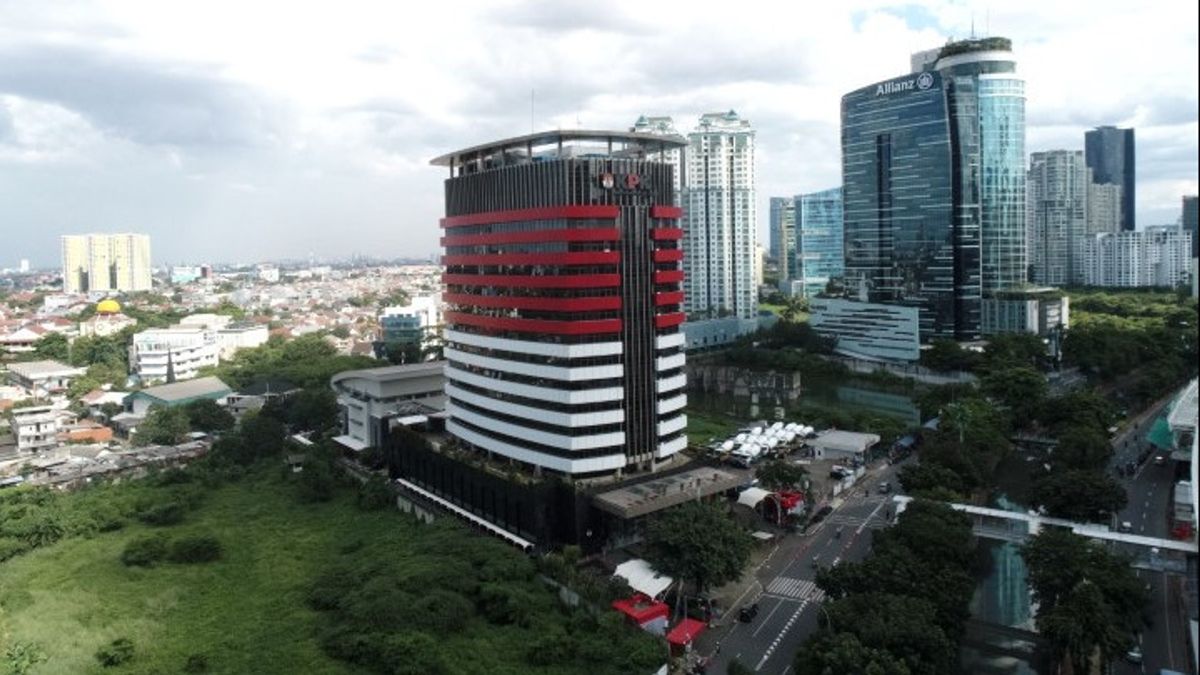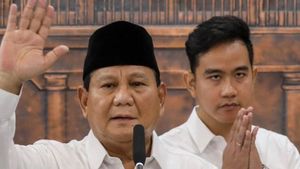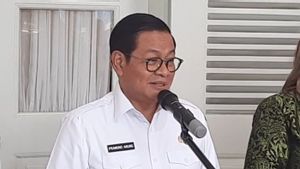JAKARTA - Four corrective actions issued by the Indonesian Ombudsman regarding the findings of maladministration and abuse of authority in the National Insight Test Assessment (TWK) refused to be carried out by the Corruption Eradication Commission (KPK). In fact, this institution emphasizes that the test which is the basis for the transfer of employee status should not be interfered with by other parties.
The KPK's stance was conveyed by the Deputy Chairperson of the KPK, Nurul Ghufron, in a press conference broadcast online on the Indonesian KPK YouTube. At that time he was accompanied by Deputy Chairperson of the KPK Nawawi Pomolango and Acting KPK Spokesperson for Enforcement Sector Ali Fikri.
"We raise objections to follow up on corrective actions suggested by the Indonesian Ombudsman to the KPK," said Ghufron, Thursday, August 5.
There are 13 points of objection from the KPK which resulted in the refusal to carry out corrective actions according to the report of the Ombudsman of the Republic of Indonesia. The points include, among other things, that the anti-corruption commission considers the Ombudsman to have violated the legal obligation to refuse reports or stop the examination of reports that are known to be under court examination.
The KPK also considers that the legal standing of the reporter is not the public who receives the KPK's public services as the party entitled to report in the Ombudsman examination.
In addition, the KPK is of the opinion that the main issue of making regulations over the status of KPK employees, the implementation and determination of the results of the TWK examined by the Ombudsman is not a matter of public service. The Corruption Eradication Commission (KPK) also denied that TWK material was inserted in the stages of policy formation.
Ghufron said the implementation of the TWK had been carried out according to the applicable regulations. He emphasized that there was no maladministration whatsoever in the implementation of the test.
Another point of objection, the KPK objected to the findings of manipulation of the date or backdate of the Memorandum of Understanding for cooperation between the KPK and the National Personnel Agency (BKN). Ghufron said this memorandum of understanding was never used and there were no legal consequences for the validity of the TWK and its results.
Not only that, the anti-corruption commission said that the corrective actions from the results of the Indonesian Ombudsman's report had no causal relationship and conflicted between the conclusions and the final report.
With these various objections, Ghufron said his party would immediately send a letter to the Indonesian Ombudsman. This letter, he said, was even sent on Friday, August 6.
Novel Baswedan called this KPK attitude embarrassing. He was one of 75 employees who were declared not to have passed the TWK and were disabled.
"This is extraordinary, this is embarrassing, and illustrates what law enforcement officials should not do. Because the important rule that must be adhered to by law enforcement officials is obeying the law and being honest. Unfortunately, the KPK leadership cannot be an example of that," he said through written statement.
He also considered the Ombudsman's findings to actually indicate a serious scandal in the process of eradicating corruption. "The KPK leadership should be ashamed when this fact is found. At least apologize," he said.
Previously, the Indonesian Ombudsman asked the KPK leadership to continue to transfer the status of Novel Baswedan and 74 other employees who were declared not to have passed the TWK to become State Civil Apparatus (ASN).
This request is one of four corrective actions submitted to the KPK after they discovered maladministration in the process of administering the test.
Another corrective step is not to use TWK as the basis for dismissing 75 employees and requesting the implementation of official education regarding national insight for employees who were terminated because they did not pass the TWK.
Finally, the KPK was asked to explain to its employees about the consequences of implementing TWK in the form of information or legal documents.
The English, Chinese, Japanese, Arabic, and French versions are automatically generated by the AI. So there may still be inaccuracies in translating, please always see Indonesian as our main language. (system supported by DigitalSiber.id)











